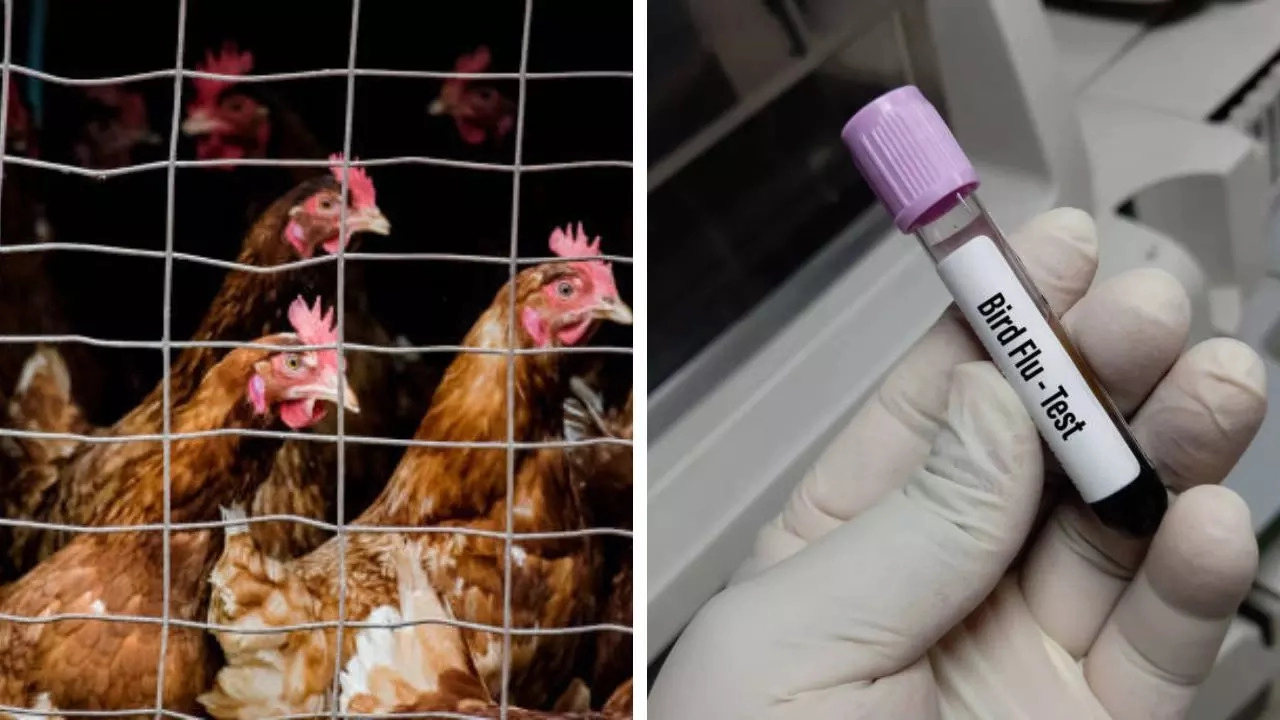Ashima Sharda Mahindra • 18 Sep 2024
As The US Enters A Riskier Season For Spread Of H5N1 Bird Flu, Experts Are Worried; Here's Why

The upcoming fall and winter months can present more opportunities for H5N1 to spread and change since both cows and other flu viruses will be on the move
As the cooler weather approaches across the United States, scientists say they are worried about an increase in the risk posed by the H5N1 bird flu virus through a hybrid virus that could more easily infect humans.
According to experts, the upcoming fall and winter months can present more opportunities for H5N1 to spread and change since both cows and other flu viruses will be on the move. Even though most of the infections in humans in the current outbreak have been mild and self-limiting, experts say each new host can give the virus a chance at infecting people.
“To be clear, we have no evidence so far that this virus can easily infect human beings or that it can spread between human beings easily in a sustained fashion,” Dr. Jennifer Nuzzo, director of the Pandemic Center at the Brown University School of Public Health said at a seminar, as quoted by the CNN. “If it did have those abilities, we would be in a pandemic.”
“The second we know that someone gave it to someone else relatively easily, that’s a new pandemic, and it will be around the globe, probably in a matter of weeks,” said added.
Why are the scientists concerned?
The concern from scientists comes as there has been a lot of buzz around the “mystery” of how a man in Missouri who had no contact with animals became infected by a type of bird flu. According to the CDC, there has been no evidence the individual who was infected had “direct contact with animals” or consumed raw milk. The person was given flu medication in August and since then, has recovered.
However, the CDC says he had significant underlying health conditions that probably made him susceptible to the infection. Additional testing by the Missouri State Public Health Laboratory confirmed that he had a type of H5 flu - which is an uncommon subtype. Only 13 other H5 infections have been reported in humans in the US this year.
Apart from the Missouri case, experts say all others have been farm workers who had direct contact with infected birds or cows.
CDC trying to sequence the genome
According to the CDC, which has confirmed that the Missouri case was an H5 infection, they are now sequencing the rest of the virus’ genome to find out whether it is related to those infecting poultry and dairy cattle. CNN has reported, so far, that CDC scientists have been able to sequence only part of the virus’s genetic material.
They have also been trying to trace contacts of those who were infected to know how the infection was passed since there was no previously reported bird flu activity in the area.
“Seeing that someone is in the hospital with possible H5N1 heightens my worry,” Nuzzo said. “It not only heightens my worry for the farm workers,” who are most at risk from infection, she said, “but it also heightens the worry that we’re allowing this virus to gain new abilities.”
How does the risk of H5N1 increase?
H5N1 has been a sort of mystery and now a heightened concern among scientists since March when an outbreak in US dairy cattle emerged. And since new cases have not been reported entire summer - when dairy cows move around less due to heat and a significant drop in demand for milk. However, now that the weather would begin to change in the fall - farmers would move cows so they could graze on the remnants of fields that had recently been harvested.
And so, according to experts, greater cattle movement could give the H5N1 virus more opportunities to spread.
The United States Department of Agriculture or USDA has ordered the testing of dairy cows before they travel between states.
How to protect yourself from H5N1 virus?
Since 2010, the CDC says it has recommended annual flu vaccines for everyone six months of age and older. Still, according to the data, less than half of all adults and children in the US got a flu shot last year. A few other ways to protect yourself from the virus, include:
Avoid contact
Doctors suggest avoiding contact with wild birds, poultry, and other animals that may be infected – it includes their poop, bedding, and materials they may have touched.
Wash hands regularly
It is better to wash your hands frequently and carefully, especially after touching animals or birds.
Wear protective equipment
For those working on farms, it is important that they handle wild or sick animals only after wearing gloves and a medical facemask.Get Latest News Live on Times Now along with Breaking News and Top Headlines from Health and around the world.